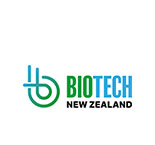New Zealand urgently needs to debate and action on gene editing, with the aim of boosting New Zealand’s bioeconomy, a BioTechNZ survey report says.
There is global interest in biotechnology as a means of altering biological processes to improve human health, food production and environmental sustainability the new report says.
Increasing demand for food, shortages of natural resources and water and environmental concerns have been driving the growth of biotech in agriculture.
“Any new technology must be trialled and understood by the public, before providing mainstream benefit. To avoid polarisation of perspectives in New Zealand, open public debate is recommended, with the government ensuring the public have access to the facts.
“Our research has identified a number of barriers that need to be overcome to enable the growth of the New Zealand biotechnology market.
“These constraints include access to capital and access to skills and talent. The current regulatory framework governing genetic modified organisms (GMO) is also a major barrier to growth for the New Zealand biotechnology sector,” the report says.
The global biotech market is forecast to be worth $US729 billion by 2025. New Zealand is positioned well: ranked fourth in the world for innovation potential in biotech.
Currently, no genetically modified products manufactured in New Zealand are commercially available. All use of GM techniques must have approval under the Hazardous Substances and New Organisms (HSNO) Act.
Five genetically modified organisms have already been approved for release in New Zealand since the passing of the HSNO Act. The releases have presented no issues.
Genetic modification relating to the social and environmental impacts have been used in research in New Zealand for more than a decade.
New Zealand’s bioeconomy is built on over a century of world class biological research. Notable successes include Glaxo (now GSK) founded by Kiwi Joseph Nathan; the disposable syringe invented by New Zealander Colin Murdoch and New Zealand-born Maurice Wilkens shared the 1962 Nobel Prize for discovering the molecular structure of DNA.
The HSNO Act applies to anything that can potentially grow, reproduce and be reproduced, bet it food or a medicine. There are currently no genetically modified commercial crops in New Zealand, and no fresh produce such as fruit, vegetables, meat or milk sold that has been genetically modified.
The BioTechNZ survey identified a national distribution of biotechnology companies with 37 percent located in Auckland, 18 percent in Wellington and the remaining 45 percent located in regional New Zealand.
The report says research in plant-based biotechnology, water biosciences, environmental technologies and human biomedical science has increased. This may be reflective of a societal move towards environmental and health concerns, plus the increasing desire for natural foods.
It is the first biotech ecosystem map for New Zealand and is a comprehensive study into the state and future opportunities for biotech, BioTechNZ executive director Dr Zahra Champion says.
“It highlights the importance of biotech and how it can contribute to New Zealand’s economic growth and diversification, as well as its ability to help make New Zealand cleaner, healthier and more prosperous.”
BioTechNZ is a member of the NZTech Alliance, which brings together 20 technology associations with more than 1500 member organisations who employ more than 10 percent of the workforce, who are working to help create a more prosperous New Zealand underpinned by technology.
For further information contact Dr Zahra Champion on 021 899 732 or NZTech’s media specialist, Make Lemonade editor-in-chief Kip Brook on 0275 030188






